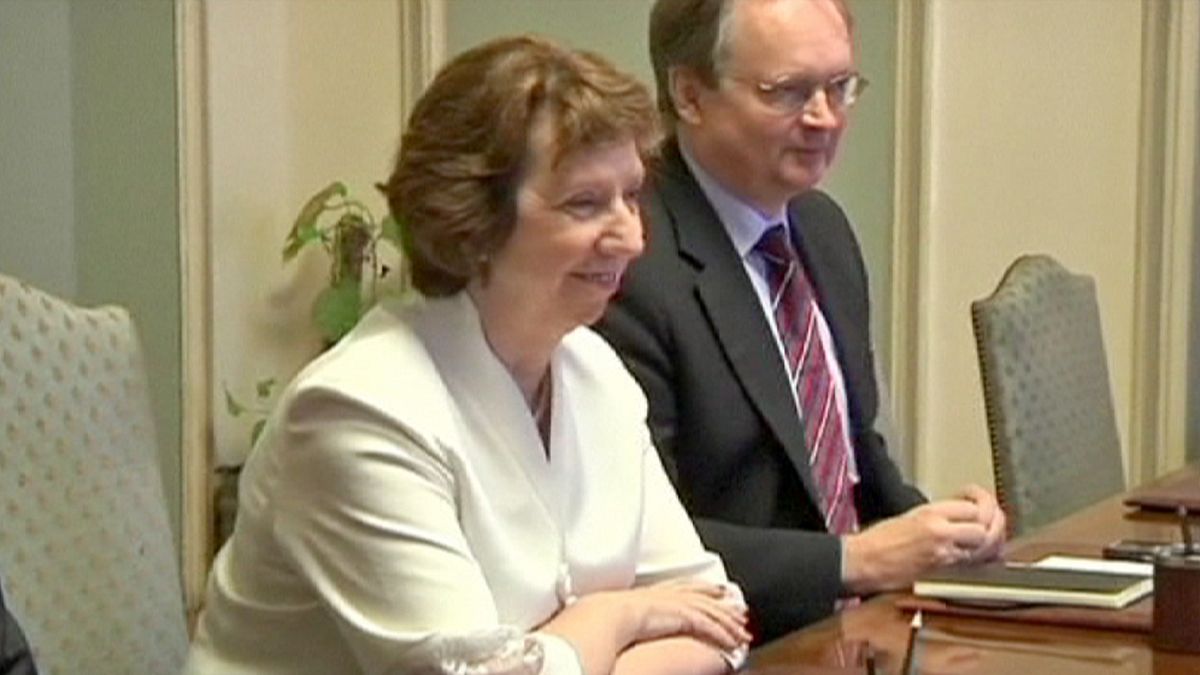For the second time in two weeks, the EU’s foreign policy chief Catherine Ashton has been in Egypt. Since her last attempt to mediate, the situation in the country has failed to improve.
On her last visit she had hoped to meet the detained deposed President Mohammed Mursi. This time round she plans to meet the man responsible for his overthrow, army leader Abdel Fattah-al-Sisi as well as members of the Muslim Brotherhood. She is hoping to reconcile differences between the two camps which have turned violent.
Ashton is the first foreign envoy to visit the country since at least 80 Mursi supporters were killed in clashes over the weekend. Her leverage is limited as the US remains Egypt’s main Western backer and source of military aid. However, she called on all sides to end the violence.
The situation in Cairo remains tense with pro-Mursi crowds threatening to march on army headquarters. Though they backed down, more marches are planned for Monday evening.
Egyptian minister vows to act on ‘strategic vision’
Euronews correspondent Mohammed Shaikhibrahim spoke to Egypt’s Foreign Minister, Nabil Fahmy, about the turmoil engulfing the country.
euronews: “There’s been widespread international condemnation of what’s happening at the Rabbya Adawiya mosque. How are you going to respond to this?”
Nabil Fahmy: “We’re going to clarify our position so that the general context can be understood by all, because every situation needs that. Following the threats to security across the country, tensions have increased. For example there’s been an attack on the police commission in Mansoura. As a result of these events, security forces have been on alert and when there’ve been violent demonstrations, there’ve been clashes between rival protesters on one hand and confrontations with the forces of law and order on the other.”
euronews: “Turkey’s Recep Tayyip Erdogan has rejected what he called a “military coup” and won’t recognise any leader apart from Mohammed Mursi. This has caused a rift between Ankara and Cairo. How are you going to heal this?”
Nabil Fahmy: “In my opinion, there’ve been a number of unacceptable diplomatic and political declarations from Turkey. This is an internal affair for Egypt and the majority of Egyptian people don’t share the view of Turkey’s prime minister. Despite that, relations and agreements between Egypt and Turkey are more important than any one political personality or any declaration. That said we intend to act in accordance with our strategic vision.”
euronews: “The US position towards what’s been happening in Egypt remains ambiguous. Some sources say there is diplomatic tension between the governments. Washington hasn’t described what’s happened in Egypt as a revolution for example…”
Nabil Fahmy: “The Americans have made several statements expressing their anxiety about the violence in Egypt and appealing for calm as well as the continuation of the democratic process. For our part, we welcome these statements. But everyone should know that the tension we’re experiencing in Egypt today is the result of violence outside peaceful demonstrations.”
euronews: “We journalists have noticed recently that Palestinians have been attacked on some Egyptian TV channels. Palestinians living in Egypt have been blamed for being behind the turmoil and this has upset some Palestinian leaders. What’s your position on this and how do you plan to handle this issue?”
Nabil Fahmy: “Egypt will not back down regarding the cause of the Palestinian people, we will always support and never change our position. However, what we’ve seen and heard on the streets and Egyptian television varies depending on political affiliations, especially media reports that have spoken of acts carried out by Hamas in Sinai – acts denied by the Gazan political group. So this case is related to Egyptian national security, it has nothing to do with a feeling of hatred against Palestinians or a change in support for the Palestinian cause.”
